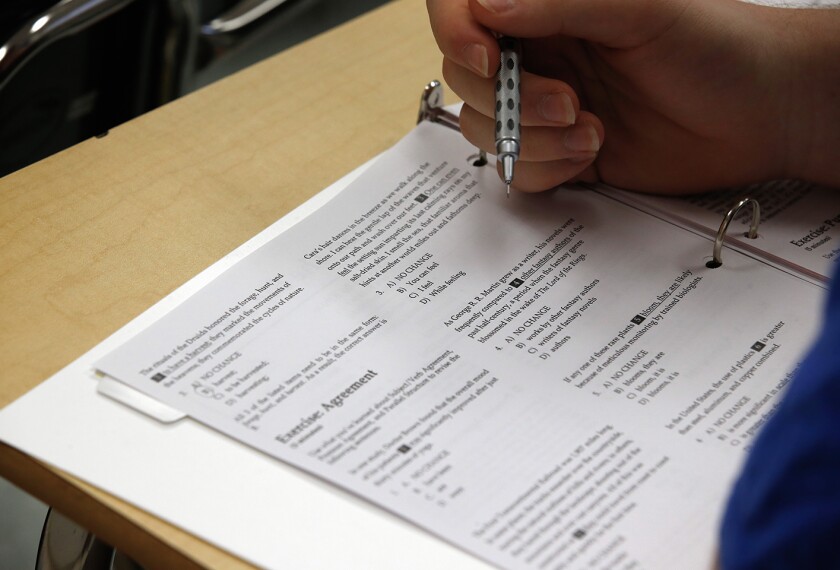Students schooled at home score higher on standardized tests than their public and private school peers in every subject and at every grade level, according to a report that is being billed as the largest study of its kind.
But home schoolers also tend to come from families with higher incomes and education levels than the average American student, says the report released last week.
Underwritten by a $35,000 grant from the Purcellville, Va.-based Home School Legal Defense Association, the study is based on 20,760 home-schooled students from 50 states.
The study’s author is Lawrence M. Rudner, a researcher who also serves as the director of the federally funded Educational Resources Information Center Clearinghouse on Assessment and Evaluation at the University of Maryland College Park.
The goal in hiring an outside researcher like Mr. Rudner was to independently verify findings from earlier studies--done mostly by home-school advocates, said Michael P. Farris, the president of the home-school association.
“Our aim in the study is not to criticize public school teachers,” Mr. Farris said. “The message is, we’re doing a good job, so leave us alone.” Part of the advocacy group’s mission is to get rid of what it sees as government barriers to home schooling.
Mr. Rudner emphasized that although the home schoolers performed well above the national median on commonly used tests, the study does not prove that home schooling is superior to private or public education.
“The message here is real simple: Home schooling works for those who’ve made the commitment to do this,” the testing expert said.
The U.S. Department of Education estimates that more than 1 million students nationwide are home-schooled; other estimates range from 700,000 to 2 million.
Family Background a Factor
The study sample drew from families who pay to use the nation’s largest home-school testing service through Bob Jones University in Greenville, S.C. About half the families returned a voluntary questionnaire. Depending on grade level, students either took the Iowa Tests of Basic Skills or the Tests of Achievement and Proficiency.
|
Unlike earlier studies, the parents did not know their children’s test scores before agreeing to take part in this one, and all students took the same nationally normed tests--those that rank students against one another. (“Home-Schooled Pupils Outscore Counterparts,” March 19, 1997.)
Home schoolers’ median scores across grade level and subject area typically fell in the 70th to 80th percentile. Almost 25 percent of the home schoolers were studying one or more grades above normal for their age.
But the study does not compare the home schoolers’ test scores with those of children from similar families who are in public or private schools.
And the report doesn’t try to explain the “why” behind home schoolers’ academic success.
The study found significant achievement differences among home schoolers depending on factors such as family income, parent education, and amount of money spent on home education.
The vast majority of home-schooled students, 94 percent, are white. They tend to come from two-parent families. And they watch significantly less television than children nationwide.
Nearly 88 percent of home schoolers’ parents continued their education after high school, compared with 50 percent for the nation as a whole. And the median income for home-school families was $52,000 vs. $36,000 for all U.S. families with children.
“I’m not saying it’s the home schooling that’s doing a good job,” said Mr. Rudner, who has served as a testing expert on behalf of home schoolers in court cases but sends his own children to public schools. “Take the same kids, similar family characteristics, and the same amount of parent involvement into the public schools, and the kids would probably do just as well.”
Implications for Schools
Among the study’s findings:
- Students home-schooled their entire academic careers tested higher than students who first attended other school programs.
- Nearly 20 percent of mothers who home school are certified teachers.
- There was no significant difference in test scores between children taught by parents without a teaching certificate and those whose parents did hold a certificate.
Although home schooling is not a feasible option for many families, experts say the study has implications for education generally.
“The implications are there regardless of where the child’s education happens,” said Bruce S. Cooper, a professor of educational administration at Fordham University in New York City, who tracks private schools. “The message is: Small is better. Strong parent and community involvement is key. We’ve known that for a long time.”



